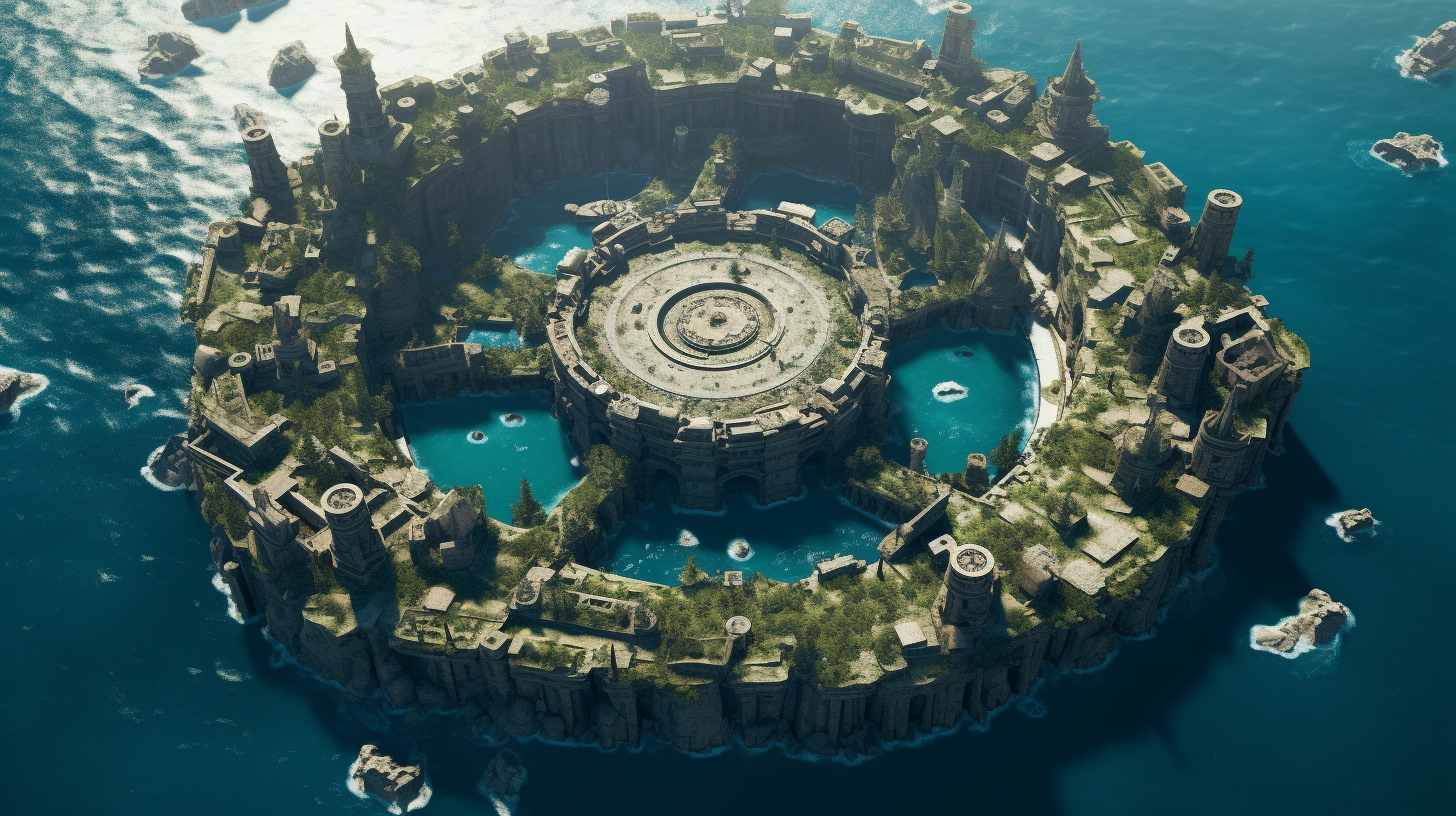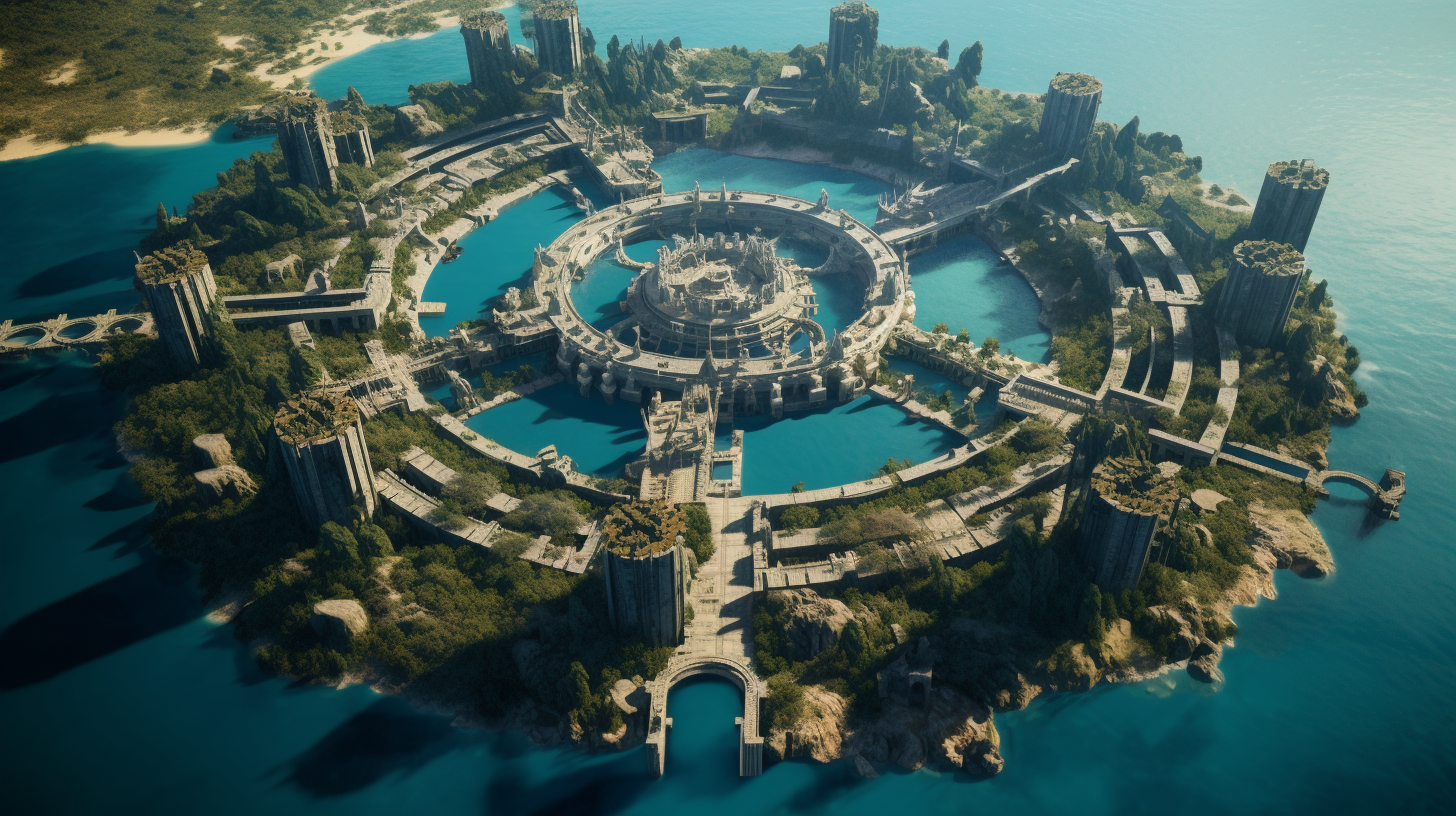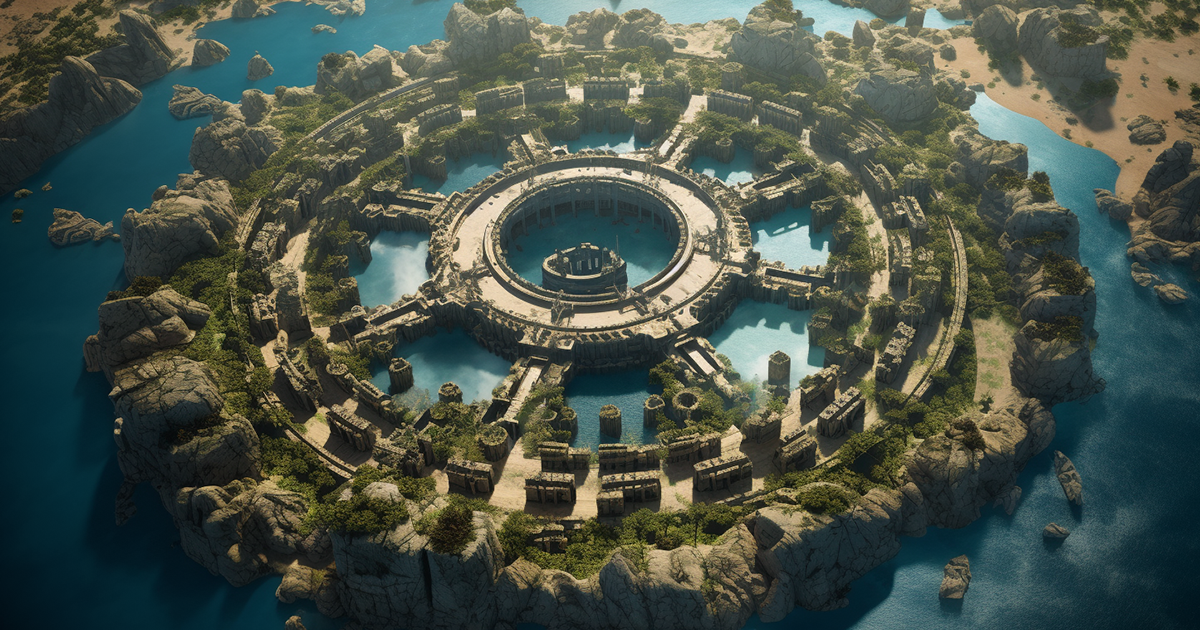The tales of lost civilizations have intrigued humanity throughout history, captivating us with their mysteries hidden in the depths of time.
From the fabled Atlantis to ancient alien encounters, the past conceals enigmas that are slowly unraveling before us.
In our pursuit of understanding human civilization’s origins, we venture into the shadows of yesteryears, scouring for clues that could unlock the secrets of our existence.
While some may dismiss these stories as mere myths, a mounting body of evidence suggests there might be more than meets the eye.
One such enigma that has fascinated scholars and enthusiasts alike is the myth of a vanished island civilization, known by various names in different cultures but often associated with Atlantis.
Plato, the ancient Greek philosopher, presented one of the earliest documented narratives of this mysterious land in his dialogues Timaeus and Critias.

According to Plato, Atlantis was an advanced society that thrived an astounding 9,000 years before his era. He claimed this progressive civilization was governed by divine laws written on a mysterious substance called Orichalcum.
The mere mention of this ancient metal, with its divine implications, sparks inquiries into its origins and significance.
Fascinatingly, in recent times, marine archaeologists off Sicily’s coast unearthed a sunken ship carrying metal ingots believed to be Orichalcum. This find reignites discussions about Atlantis’s existence and the likelihood of historical accuracy in Plato’s accounts.
The mystery deepens when contemplating the source of Orichalcum. How did the ancient Atlanteans obtain this distinctive metal, and what purpose did it serve?
Advocates of the ancient astronaut theory propose that extraterrestrial entities could have shared advanced knowledge with our ancestors, including metallurgical secrets.

Plato’s narrative of Atlantis is not an isolated tale. Similar accounts of vanished civilizations obliterated by catastrophes can be found in Native American lore, such as the Hopi legends.
These narratives often revolve around divine intervention, where gods or celestial beings influenced the ascension and demise of civilizations.
The striking resemblances among these diverse cultural accounts pose thought-provoking questions. Could it be that ancestors from different corners of the globe encountered the same extraterrestrial visitors? Ancient astronaut theorists suggest this possibility.
As we contemplate the possibilities, we confront evidence of submerged land masses like Doggerland and Zealandia, hinting at ancient cataclysms that reshaped the Earth’s terrain. Could these submerged remnants signify lost civilizations?
Another intriguing aspect of the Atlantis saga is its link with psychic Edgar Cayce, who prophesied a concealed Hall of Records in locations including Egypt, the Bahamas, and the Yucatan Peninsula.
These alleged records, as per Cayce, could illuminate our planet’s true history and its interactions with extraterrestrial entities.
Despite skeptics dismissing these enigmas as mere folklore, the accumulating evidence and unexplained discoveries kindle our curiosity. As we delve deeper into the past, we might be on the cusp of revealing a truth that could reshape our comprehension of human history.
Video:
In our ceaseless pursuit of knowledge, we must stay receptive to the notion that our origins are intricately intertwined with the cosmos, far more complex than we fathom. The enigma of lost civilizations endures, urging us to piece together the final segment of the puzzle that could revolutionize our perception of Earth’s past.
Standing on the verge of discovery, we must ponder: Will we unearth these truths before it’s too late? The quest to unravel the past’s mysteries persists, with answers potentially closer than we anticipate.
